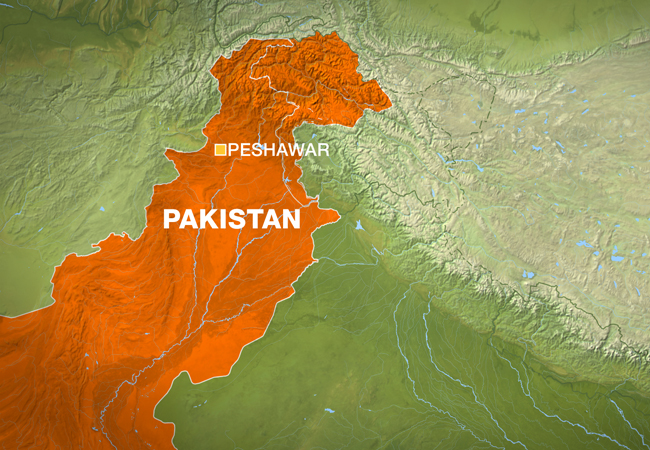Pakistani Taliban concludes negotiations
Talks between anti-government group and their intermediaries wrap up amid deadly new attacks in Peshawar.

Two days of talks between the Pakistani Taliban and their intermediaries in the tribal Waziristan region have concluded.
The discussions, which ended on Monday, were part of ongoing peace negotiations with the Nawaz Sharif government, which began last week.
Mohammad Ibrahim, a senior member of the Tehreek-e-Taliban Pakistan (TTP) dialogue committee, and leader of the northwest Afghanistan branch of the Jamaat-e-Islami party, was at the talks and held a news conference in the northwestern town of Akora Khattak on his return from North Waziristan.
Since July 2007, Pakistan has been gripped by a TTP-led insurgency, concentrated largely in the northwest.
Ibrahim said he was feeling positive that progress was being made. He said that he conveyed the government’s demands to the TTP leadership and received demands from the group, but declined to disclose them.
Pakistan’s military entered the tribal areas in 2003 after the US invasion in 2001 of Afghanistan, launching operations against homegrown and foreign fighters.
Ibrahim said “both the committees have requested both the sides to take care and to avoid any violent activities … which can spoil these negotiation processes”.
The Taliban committee is likely to hold a meeting with a government committee on Tuesday in Islamabad.
The TTP says it wants security in the tribal areas taken out of the hands of the army and given to local security and administrative officials, a move which would strengthen the fighters’ control.
Peshawar attacks
There is widespread scepticism about the chances of ending the TTP’s violent campaign, particularly since regional deals have quickly broken down in the past.
Underscoring the shaky nature of the peace negotiations, a suicide bomber blew himself up in the house of a pro- government tribal elder in the northwestern Pakistani city of Peshawar on Monday, killing four women, according to police.
 |
The attacker had run into the home of the elder, Jan Mohammad Afridi, in the city’s Chamkani area, after local residents spotted him as being suspicious and the police gave chase, police said.
Peshawar is the capital of Khyber Pakhtunkhwa province. It was not known if Afridi, who was in the opposite part of the house at the time, was the initial target.
At some point, his explosives were detonated although it was unclear whether the assailant blew himself up or if one of the bullets from the gunfire set off the explosives.
In a second incident in Peshawar on Monday, assailants killed a Pakistani employee of the US consulate, officials said.
Two armed men riding a motorcycle opened fire on Faisal Saeed, 30, outside his residence in Peshawar, Najibur Rehman, senior police official, told AFP news agency.
Rehman identified Saeed as a former employee of the US consulate in Peshawar, but the US embassy in Islamabad said he was a staff member.
Gas pipelines targeted
In a separate development, Pakistani officials said on Monday that separatists in Balochistan province blew up three gas pipelines on Sunday night, cutting supplies to millions of households.
The damage to the pipelines, that run through central Pakistan in Rahim Yar Khan district, will take at least two days to fix, the head of Sui Northern Gas said on Monday.
Arif Hameed said the gas supplies to Pakistan’s most prosperous province of Punjab had been badly affected.
The separatist group, the Baluch Republican Army, claimed responsibility for the attack.
The separatists are based in Balochistan, a region in Pakistan’s southwest adjoining Rahim Yar Khan, which lies in Punjab.
A spokesman for the group said the attack, which occurred late on Sunday, was in response to the discovery of dead bodies of Baluch activists in Balochistan.
Baluch separatists have been waging a low-level insurgency against the Pakistani government for years.